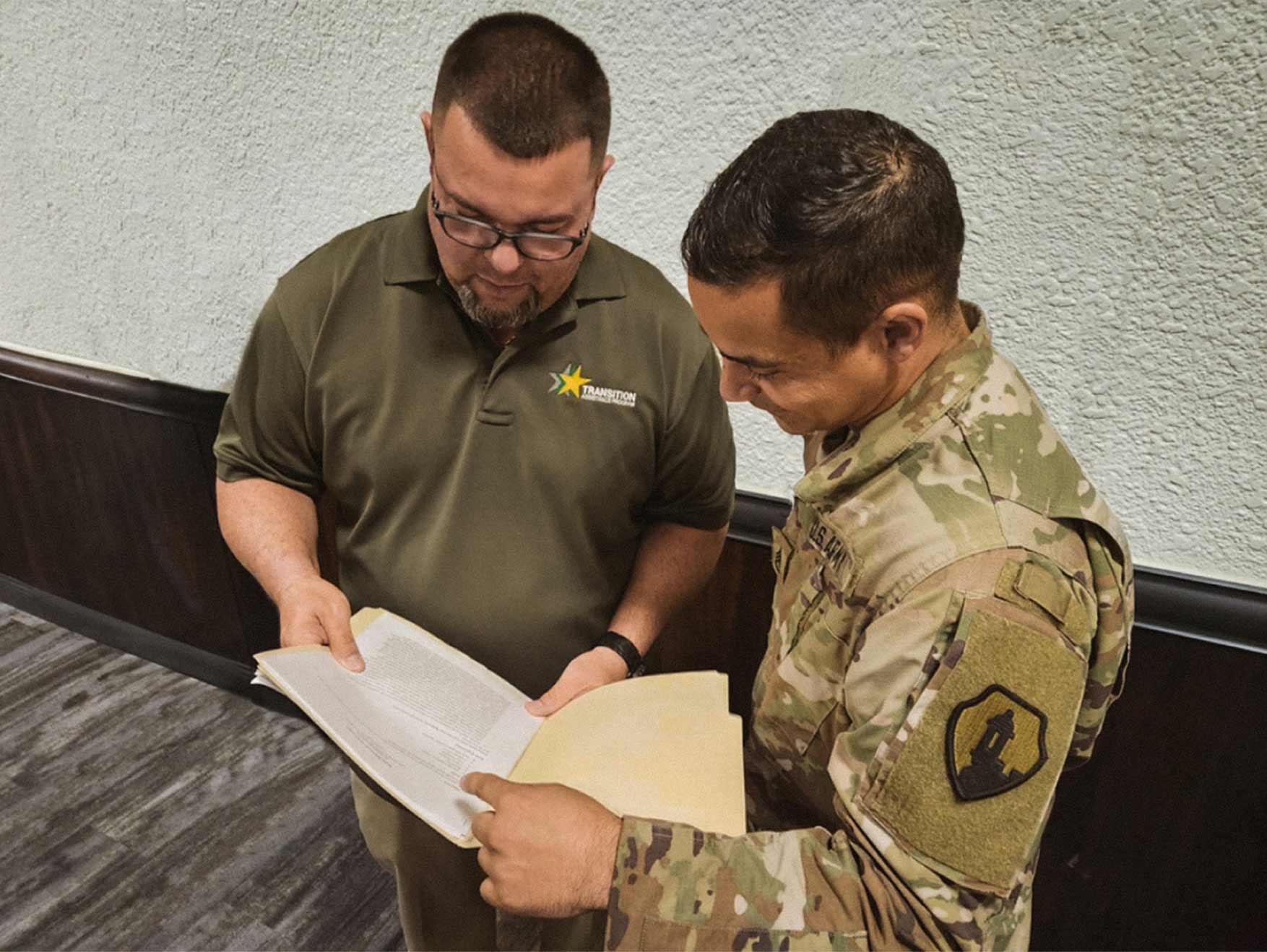Veteran Programs & Services
Get ongoing support after you serve.
It's part of our mission to care for Soldiers even when their service ends. As a veteran, you’ll have access to a range of federal programs and services through Veteran Affairs (VA) to help you transition after your time in the Army.

Plan your next move.
Starting up to two years before your contract ends, the Transition Assistance Program, or TAP, helps you prepare for life after service.
Career counseling
Resume and job application assistance
Budgeting techniques
Step into
Step into
Your next
Your next
Role.
Role.
Take the first step.
Common questions about veteran programs and services.
Not finding what you need?
Chat with us any time.
When can I start the Transition Assistance Program (TAP)?
When can I start the Transition Assistance Program (TAP)?
The Transition Assistance Program (TAP) is a 12 – 18 month program that ensures Soldiers are ready to make a smooth transition out of the Army and into their next endeavor—whether that’s a new career or continued education. You must start it at least one year before your contract ends, although you can start it up to two years before leaving to get the maximum benefit.
Can TAP help me find a job?
Can TAP help me find a job?
Yes, one of the main goals of TAP is to help Soldiers find new careers after service. At the start of the program, you’ll receive individual career counseling to identify civilian jobs that line up to your existing skills and experience. You’ll receive help improving core jobs skills like resume writing, applying for jobs, and interviewing. Beyond that, you’ll have access to job fairs, first-class apprenticeships, on-the-job training, job shadowing, and internships.
Do you get health care as a veteran?
Do you get health care as a veteran?
Yes, retired service members and their families have access to a variety of low-cost and high-quality health care benefits through TRICARE even after service. The options available and details of each plan will differ based on whether you served full time or part time, the ages of you and your family members, eligibility for Medicare, and more. Health care coverage is also available for surviving spouses and children, and former spouses who meet eligibility requirements. Also, it’s important to know that you can receive free treatment at the VA for any conditions caused or made worse by your Army service.
What disqualifies me from my VA health benefits?
What disqualifies me from my VA health benefits?
Generally, in order to receive VA benefits and services, your character of discharge or service must be under other than dishonorable conditions (e.g., honorable, under honorable conditions, general).
However, individuals receiving undesirable, bad conduct, and other types of dishonorable discharges may qualify for VA benefits depending on a determination made by VA.
Incarceration does not disqualify you from your VA health benefits, although access to VA medical facilities may not be available during incarceration.
If you receive disability benefits, you can lose them by committing fraud, like lying about the severity of your condition.
Disability benefits can also be impacted if you are incarcerated—the impact varies based on the reason for incarceration.
How is the Army helping veterans with PTSD?
How is the Army helping veterans with PTSD?
Post-Traumatic Stress Disorder, or PTSD, is a serious mental health condition, and the Army is committed to helping veterans experiencing it. Whether you just left service or you’ve been out for decades, you can receive free individual therapy, group therapy, outpatient care, specialized in-patient care, and medicine at the VA’s more than 200 PTSD treatment programs across the country.